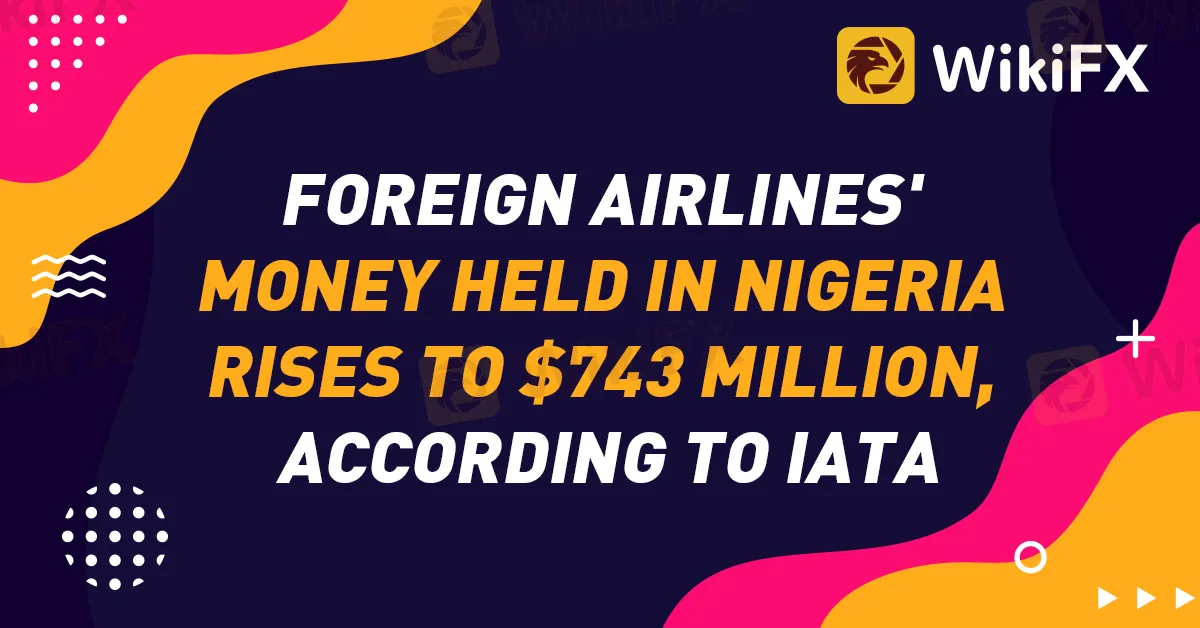Abstract:According to IATA, blocked airline funds in Nigeria increased to $743.7 million in January from $662 million in December.

According to IATA, blocked airline funds in Nigeria increased to $743.7 million in January from $662 million in December.
The Nigerian government has been urged to permit foreign airlines to repatriate their funds that are locked in the nation by the International Air Transport Association (IATA), the leading worldwide trade group of airlines.
The amount airlines have been unable to bring back into the country increased to $743.7 million in January from $662 million in December, according to the organization.
IATA brought up the issues on Tuesday in Abuja during a courtesy call to the aviation minister, Hadi Sirika.
Samson Fatokun, the IATA Area Manager for West and Central Africa, who was in charge of the delegation, implied in his statements that Nigeria had been the nation with the most airline funds blocked globally for more than a year. Additionally, he issued a warning that the situation might worsen for the nation.
IATA and the international airline community would like to request your special action to help resolve the stalled money situation for airlines in Nigeria.
“Airlines' blocked funds in Nigeria climbed to $743, 721,097 in January 2023 from $662 million in January 2023 and $549 million in December 2022,” he said. According to Mr. Fatokun, a worrying message is sent regarding foreign direct investment (FDI) in Nigeria by the growing backlog of international airlines that have stopped funds in the nation.
He emphasized that, at a time when Nigeria is expecting more investments, potential investors are inferring from the predicament of airlines that they might not be able to repatriate their assets from Nigeria.
The group outlined the legal framework of the Bilateral Air Service Agreement (BASA), which was negotiated between their nations and the Federal Republic of Nigeria, which governs foreign airlines' flights into Nigeria.
According to the BASAs, Nigeria will make it easier for the other party to bring their airline's funds home. Nigeria violates this contractual requirement by not doing enough to facilitate the repatriation of airline funds, according to the IATA.
Mr. Fatokun stated that some airlines had chosen to scale back the number of their trips or seats offered for sale in the Nigerian market in order to lessen the growing backlog of funds trapped in Nigeria and its impact on their cash flow. This decision was made in response to the continuing difficulties in the repatriation of trapped funds.
According to him, this has made it harder for people and freight to travel to Nigeria, and the country's e-commerce will suffer as a result.
The decrease in airline stocks in the Nigerian market would also result in higher ticket prices, which will further burden typical Nigerians and make air travel unaffordable for many of them, according to the law of supply and demand.
LACK OF FOREX
Nigeria's foreign exchange situation has gotten worse recently as its foreign reserves have been depleted.
The aviation industry has been severely damaged by the FX crisis, particularly as local and foreign airlines must now pay more for aviation fuel.
Last year, Mr. Sirika told airline operators in a crisis conference that “there are no rapid solutions” to the industry's lingering dilemma because it is a worldwide issue.
IATA suggested that over that time, the number of passengers that airlines have been unable to bring home has been steadily increasing. Because to this, certain major airlines, like Emirates, have threatened to halt operations to and from Nigeria on numerous occasions.
The Central Bank of Nigeria (CBN) in August granted $265 million to airlines operating in the nation as a means of resolving outstanding stuck funds from ticket sales.
The National President of the National Association of Nigeria Travel Agencies (NANTA), Susan Akporiaye, urged Mr. Sirika to assist in resolving the stalled money for the airlines at the meeting on Tuesday.
She clarified that the ability of airlines to expand is crucial to the survival of the downstream sector of the aviation industry (Travel Agencies, Ground Handling Companies).
Such firms would suffer, which would result in job losses, should the airlines be forced to further restrict their capacity.
Ground transportation (taxi, rental cars), hotels, and restaurant output will all be negatively impacted indirectly.
In his answer, Mr. Sirika stated that Nigeria was dedicated to the BASA agreement, that the ministry was worried, and that she would work tirelessly to find a quick solution to the stopped cash issue.
The minister emphasized, however, that the Central Bank of Nigeria is responsible for handling the matter of frozen funds.
In light of the ripple effects of COVID-19 and the recession on the country's economy, he pleaded with the international airline operators to handle the situation with consideration.










